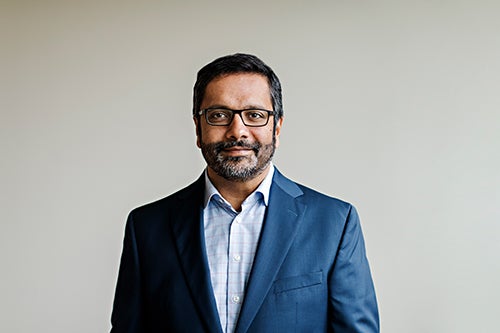Every mathematician solves math problems, but only a handful of mathematicians study the logical reasoning that they and their colleagues use to solve problems. They focus on the journey, not just the destination.

From that point onward, Moosa staked his tent at the intersection of math and logic. He joined the Faculty of Mathematics in 2004. “It’s rare to have an entire faculty of mathematics and rarer still to have a department for pure mathematics,” he reflected. “The Faculty of Mathematics has provided a supportive research environment that affords me and my colleagues the freedom to sink deep into our research. There are very few constraints.”
Moosa pursues research projects in other areas of pure mathematics, particularly algebraic geometry, in addition to his continuing work on model theory. Every several years, he takes a sabbatical to advance research in his field in close collaboration with pure mathematicians from around the world. Institutes of mathematics frequently gather experts in one subject to work together for several weeks or months at a time, he explained. “It’s like a creating a short-term math department.”
In the past, Moosa has participated in programs at the Mathematical Science Research Institute in Berkeley, the Isaac Newton Institute at Cambridge University and the Institut Henri Poincare in Paris. This year, he is serving as lead planner for a program that will bring close to 150 researchers to the Fields Institute in Toronto to study trends in pure and applied model theory. “It’s a very special thing to have this global community that you see periodically over many years,” he shared. “I always return with the juices flowing. Sometimes it takes a few months, but inevitably the ideas start percolating.”
Whether he is mentoring a student or participating in an overseas conference, Moosa derives great satisfaction from pursuing the fields that spark his curiosity. “I consider it a privilege to be able to make a living by thinking about ideas and problems,” he expressed. “In pure math, there are no labs and no computers. It’s just me and my thoughts.”